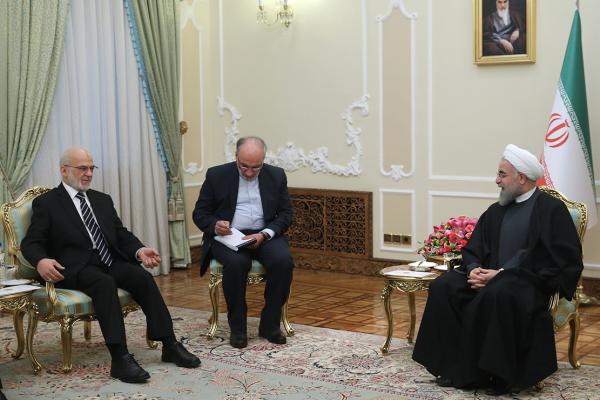It can be said that the stance taken by the Organisation of Islamic Cooperation (OIC) against Iran is considered the strongest stance taken by the organisation. The words that shaped the statement issued by the organisation formed a severe blow to Iranian policy which has become isolated from even the nearest states to it, and the organisation has never before issued a statement like this that contains such force and statements like “the condemnation of the blatant interference in the affairs of Saudi Arabia”, “the condemnation of Iran’s interference in the internal affairs of countries in the region and other member states, including Bahrain, Yemen, Syria and Somalia”, “the condemnation of (Iran’s) continued support of terrorism” and “the condemnation and rejection of provocative Iranian statements”.
It is true that statements are not a requirement to express the real positions of countries, but the inability of 55 states to take a neutral position with regards to the “Iranian attacks” alludes to the fact that the red line in Arab and Islamic relations with the Iranian regime has started to become clear. After the positions of the Gulf Cooperation Council (GCC), the Arab League and now the OIC, we can say that Iran’s traditional allies are no longer able to continue to turn a blind eye to its hostile behaviour and destructive policies.
The position of the OIC countries was very important and it sent a clear message to the countries of the west after they sought to promote the Saudi position of cutting ties with Iran as “dramatic” and an “overreaction”. The successive positions prove that Riyadh’s response was natural and that the positions of the 55 Islamic countries who condemned “provocative Iranian statements concerning the implementation of court rulings issued against a number of perpetrators of terrorist crimes in Saudi Arabia” and who regarded that as a blatant interference in the internal affairs of the Kingdom is another message that what the west sees as a mistake is not necessarily seen by the world as correct.
The formation of this collective position confirms the validity of the Saudi positions whether that is regarding positions to combat domestic terrorism or to stop terrorism abroad such as the behaviour of the Iranian regime which has received a strong blow this time from neighbouring countries that rejected it. Even Iraq, one of the closest countries whose interests converge with Iran’s is not able to take a neutral stance with regards to the Iranian position.
Interestingly, the position of OIC countries came at the same time as Iran’s promotion of the idea that the lifting of western sanctions is part of it opening up and ending its isolation. Aside from the fact that the billions that will be released are basically restricted, Iran will have to “accept humiliating arrangements which will put a large part of the country’s economy under effective international supervision” as explained by our colleague Amir Taheri in his article that was published in this newspaper yesterday. The reality that is visible to eyes is that the collar of isolation is strangling Iran in a way that hasn’t occurred since the end of the Iran-Iraq war in the late eighties, and countries that are associated with its interests are refraining from showing that they are close to it or friendly with it, at least in front of the world.
In the meeting held in Jeddah on Thursday, the Iranian Deputy Foreign Minister Abbas Araghchi complained that the organisation’s position against his country is creating a “split in the Islamic world” and this was ridiculed by those present considering that all the countries present were on one side, and Iran and Lebanon, of course, were on the other side. What split was he talking about? The real split is what happened previously. As for now, many goals are being scored against Iran whilst Tehran is confused about how to stop the growing attitudes opposing it.
